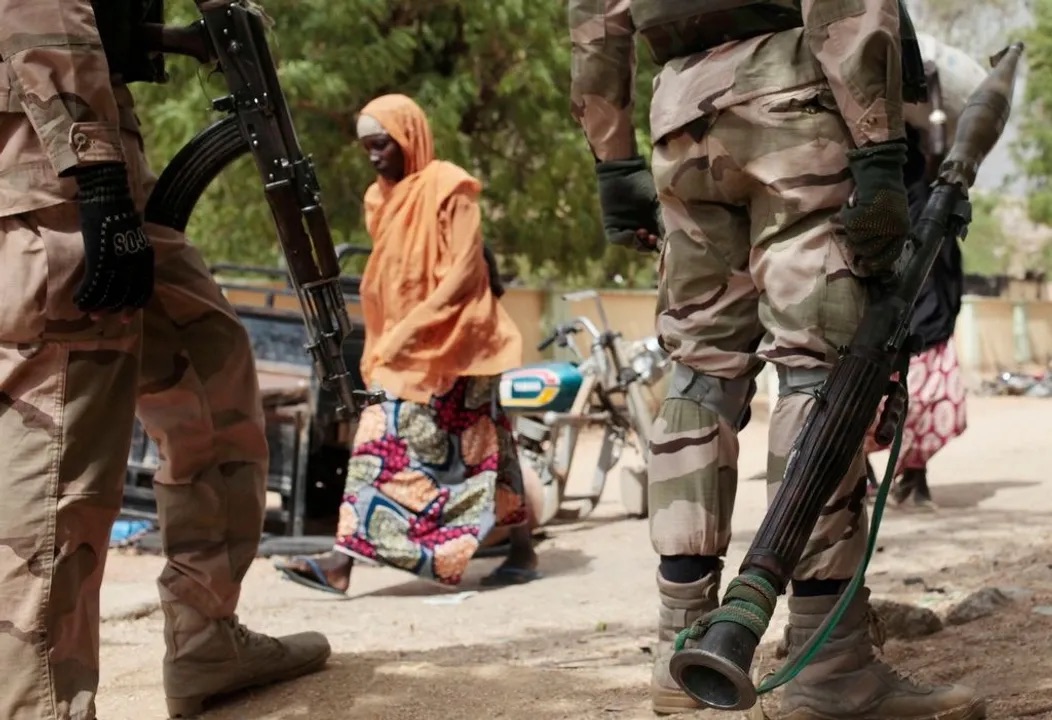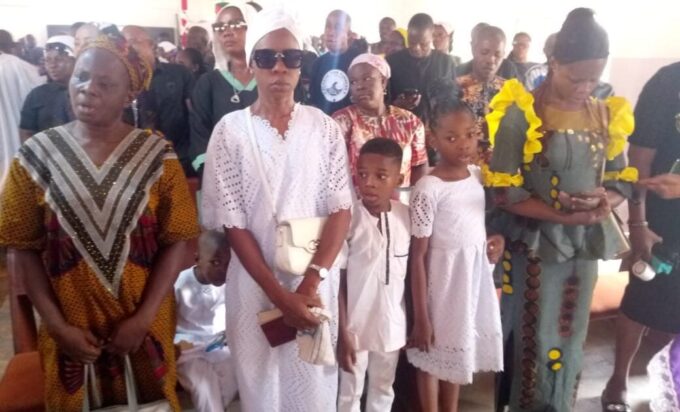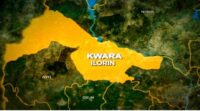• Farms now war zones, we can’t cultivate optimally –AFAN ν We move in droves to be less vulnerable to assault –Women farmers ν FG pledges safety, food sufficiency
From Uche Usim and Okwe Obi, Abuja
The federal government’s food security drive is currently being stalled by incessant farmer-herder clashes and renewed insurgency across various agrarian villages in Nigeria.
From late 2023 to mid-2025, at least 922 farmers and villagers have been reportedly murdered by insurgents as turf wars centered around food and water persists.
In May 2025, suspected Islamist militants, believed to be Boko Haram or Islamic State West Africa Province (ISWAP), killed at least 23 farmers and fishermen in Malam Karanti village in Borno State.
The victims were gathered and executed, with only one elderly man spared to alert the community of the fascist takeover of their ancestral land.
Again, in April this year, Benue and Plateau States felt the pangs of the marauding herders.
The two jurisdictions recorded a surge in rural violence which led to over 150 deaths and thousands displaced. The attacks were attributed to conflicts between nomadic herders and sedentary farmers, exacerbated by climate change and an influx of arms.
It was the turn of Niger State in March 2025 as bandits killed 165 farmers and demanded ₦3 billion in levies from communities. Farms were deserted as bandits set produce ablaze and imposed farm access levies before allowing harvests.
In December 2024, Plateau State was in the news, albeit for the wrong reason, as coordinated attacks in Bokkos and Barkin Ladi local government areas resulted in approximately 200 deaths and over 500 injuries.
Fulani militias were believed to be responsible, targeting 20 rural communities.
In November 2024, communities in Eha-Amufu, Isi-Uzo Local Government Area of Enugu State wept as suspected Fulani herdsmen killed four farmers within 24 hours. The attacks caused panic and highlighted the vulnerability of farming communities.
In September 2024, Yobe State was in tears as over 50 armed Islamic State militants attacked the district of Tarmuwa, killing 130 villagers. The massacre was reportedly in retaliation for villagers informing security forces about militant activities.
In May 2023, Mangu area of Plateau State witnessed a bloodbath. Killer herders attacked multiple villages, including Kubwat and Fungzai, resulting in over 100 deaths. The violence was reportedly triggered by a dispute over a destroyed banana plantation. The state recorded similar horror a year prior when bandits believed to be Fulani herdsmen attacked nine villages in Kanam and Wase local government areas, killing more than 150 people and kidnapping about 70 others.
The House of Representatives had disclosed that herder-farmer clashes have claimed 60,000 lives since 2001, highlighting the severity and persistence of the conflict.
Commenting on the renewed insurgency that has forced farmers out of their farms to seek refuge elsewhere, the National President, All Farmers Association of Nigeria (AFAN), Kabir Ibrahim, said the troubling development has led to a frightening dip in food production.
He said many farmers are now scared to venture into their farms as they fear being killed or kidnapped for ransom. “It is like a war zone. One bomb, another bomb, another bomb. I don’t know where it is coming from. But I have always said that our families are not supposed to be killed. If people cannot produce optimally, then you cannot expect enough food from them or even prosperity for that matter. They will not be able to produce even those things that are cash crops.
“Once there is no security and people are being killed in where they work, will you go there and get killed? Even as a journalist, if they say that people are being killed somewhere, will you go there and operate as a journalist?
“So, the farmers are not encouraged. They cannot go to their farms and that is why they are not producing enough food. That is also why the Nigerian food system is such a bad thing.
“In terms of losses, we need data to scientifically determine the volume of losses with regards to farm produce and the number of farmers that have been killed or displaced”, he told Daily Sun.
Also speaking, a member of the Small Women Farmers Association of Nigeria (SWOFON), who pleaded anonymity for safety sake said:
“We go to the farm in clusters and in droves. As I speak to you, I can’t go to the farm alone. One or two persons must follow or people in my community must be aware that I am going to the farm in the Federal Capital Territory (FCT) Abuja.
“We women are the most vulnerable. It has happened before in which farmers were raped with reckless abandon. Who do we cry to? We are only putting up a strong face so that we will not disappoint other farmers”.
A member of the Small Scale Women Farmers Organisation of Nigeria (SWOFON), Felicia Udechukwu, explained that most women farm close to each other.
Udechukwu said: “For some of us in the Federal Capital Territory (FCT) Abuja, we try to farm close to each other. In doing so, we watch each other’s backs. Insecurity is not something we should play with. Herdsmen are not allowing us to farm in peace. We are going through a lot.
The problem here is that the only available farmlands around the FCT are situated in Gwagwalada, Kwali and Abaji. These places are on the outskirts of the city centre. If you tell me to go to the farm today alone, I will not go. That is how bad it is.
Another farmer, Muhammadu Saidu, said he had reduced the scale of his farming, noting that he cultivates crops behind his compound.
Saidu said: “Before this incident started, I used to rent plots of farmlands to farm and I harvested bountifully. But since the insecurity went full blast, I decided to use my backyard.
“In terms of insecurity, everybody is a suspect and the government is not helping matters. We keep hearing of assurances yet people are being killed on a daily basis.
“The number you gave, I doubt if it is not more than that. Maybe it is the government that is downplaying it. So many farmers have been killed. It is under-reported.
“The agro ranchers the government talked about are not enough. They are not properly equipped. Even those who are properly equipped cannot go around the farmers.”
An expert in agriculture, Abiodu Sodiq, encouraged the government to insure farmers who are victims of attack.
Sodiq said: “We know what to do. But first of all, I advise the government to insure farmers. The Nigeria Agricultural Insurance Corporation (NIAC), should begin to insure farmers who are victims of these attacks.
“That will make sense because if we allow bandits to continue operating and farmers keep running away from their farms, we will run out of food. Those who have will hike the prices of commodities and we do not want that”.
Amid the escalating tensions and nationwide protests over farmer-herder violence, President Bola Tinubu has assured of protecting farmers and Nigerians generally to ensure food security and a progressive country.
As the rainy season peaks, the Nigerian Armed Forces have pledged to bolster security for farmers and safeguard agricultural lands.
This move, the military said, aligns with the directive of President Bola Tinubu, who has tasked security agencies with ensuring safe access to farmlands in support of national food production and food security.
In his recent weekly operational briefing, the Director of Defence Media Operations, Major General Markus Kangye, said that troops launched renewed and strategic operations across various flashpoints during the review period of 8 to 15 May 2025.
“These operations are carefully designed and executed to ensure the safety of farmlands, farmers, and the general population, while restoring peace and stability in affected regions,” Kangye stated.
He reiterated the military’s strong commitment to national security, emphasising that the Armed Forces, under the leadership of the Chief of Defence Staff, General Christopher Musa, “is not negotiating issues of national security and the welfare of its personnel.”
“Our troops remain resolute and ever-determined to safeguard the nation’s territorial integrity, defend our national interests, and protect citizens from all forms of threats,” he said.
During the period under review, Kangye reported that troops destroyed several terrorist camps, rescued kidnapped victims and rehabilitated civilians impacted by ongoing conflicts.
Also seeking solutions to the perennial challenge, the United States Ambassador to Nigeria, Richard Mills, last month, met with leaders of the Miyetti Allah Cattle Breeders Association of Nigeria (MACBAN) to address the concerns of herder communities.
The United States Consulate said conversations centered on understanding the root causes of insecurity affecting pastoralist populations and seeking pathways to lasting peace.
The meeting comes against the backdrop of renewed unrest in states such as Benue, Plateau, Ondo, and Ogun, where attacks on farming communities by suspected herdsmen have triggered widespread outrage and deepened public anxiety over rural safety.
According to the Consulate, Ambassador Mills’ discussions with MACBAN leadership aimed to promote inclusive dialogue and identify peaceful, community-driven solutions to the conflicts disrupting agricultural productivity and social cohesion across Nigeria’s central and southern regions.
Available data shows that the ongoing farmer-herder violence is driven by a complex interplay of factors like; resource competition (battle over arable land and water) accentuated by climate change.
Climate change is leading to widening desertification and unpredictable weather patterns, which have forced herders southward into farming communities.
Another factor listed by social scientists is weak security infrastructure as understaffed and under-resourced security forces struggle to respond effectively to insurgents attacks.
More so, an influx of weapons has intensified the scale and lethality of attacks; just as ethno-religious tensions involving Muslim herders and Christian farmers have added a sectarian dimension to the conflict.
Security and finance experts have repeatedly said that the persistent attacks on farmers not only threaten food security but also exacerbate humanitarian crises in affected regions.
As a panacea, they suggested a multi-stakeholder approach, including security reforms, conflict resolution mechanisms and sustainable resource management.















Leave a comment